Below we have answered all the questions we get asked most:
The road safety work undertaken by the Vision Zero South West road safety partnership is funded by the surplus costs recovered by Devon & Cornwall Police from offending motorists through driver training schemes and costs awarded by Magistrates Courts, once the police operating costs are met.
Drivers identified as having committing road traffic offences on a first occasion, and in defined circumstances, can be offered a driver training course. These courses are preferred to issuing fines or penalty points because they are proven to have a longer effect on safe driving behaviour. An educational diversion from prosecution can only be offered if the offending driver has not completed another course within a 3 year period.
When a motorist is convicted at a Magistrates Court, the Court may award costs to Devon & Cornwall Police which are also reinvested into road safety prevention and enforcement delivery.
Devon and Cornwall Police recovers administration costs following referral to UKROEd National Driver Offender Retraining Scheme (NDORS) courses – and under the Police, Crime, Sentencing and Courts Act 2022, provides a source of funding to VZSW’s road safety delivery plans, which aim to deliver innovative and effective road safety projects to reduce the risk of harm and educate road users.
Vision Zero is led by a partnership board which includes a wide range of experts from all around the South West including senior police and fire officers, leading clinicians, councillors, highway authority directors and the Police and Crime Commissioner for Devon, Cornwall and the Isles of Scilly.
The board meets quarterly to discuss ideas and decide what actions can be taken to further drive down the number of people killed or seriously injured. Each meeting starts with a roll call of the people who have died on our roads since the previous meeting, followed by a minute’s silence in their memory.
Vision Zero also has a Development Group which is tasked with developing key documents such as the Road Safety Strategy and associated annual delivery plans, communication and engagement strategy and strategic assessment, as well as overseeing practical projects with the specific aim of reducing deaths and serious injuries on our roads.
Day-to-day, Vision Zero is administered by a small team employed across partner organisations. This includes a partnership manager, strategic analyst, communications and engagement coordinator and administrative support.
The work of Vision Zero South West falls into two main categories – Monitoring and Enforcement (known as Activity A) and Education and Prevention (known as Activity B). Both activities have dedicated sub-groups which meet monthly and quarterly respectively and include representatives from across the partnership. Data intelligence and communications underpin and support all activities through an established evidence base. All project activity is subject to evaluation to ensure that it delivers against set objectives.
Vision Zero South West is focussed on reducing the number of people killed or seriously injured on Devon and Cornwall’s roads. The partnership funds a wide variety of projects or campaigns which share this aim through a number of different platforms, including a grant funding programme open to members of the public.
Here are some examples of things Vision Zero South West has recently supported financially:
- A study looking into the barriers and enablers of administering potentially life-saving TXA when administered to road traffic collision victims by professional bystanders
- Subsidised advanced training courses for young drivers and motorcyclists
- Vehicle Activated Signs (VAS) for communities who applied for funding through our ‘Call For Ideas’ initiative
- The purchase of speed detection equipment on behalf of Devon & Cornwall Police
- A trial of the Acusensus AI camera system which detects seatbelt and mobile phone offences
- The purchase of a Ford Focus RS car to promote road safety to younger car enthusiasts
- Targeted road safety advertising and publicity campaigns
- A pilot project delivering pedestrian training
- Cycle and Motorcycle roadside warning signage
Speed limits are set by your local authority which depends on where you live. Below are the contact details for each of the local authorities in the South West:
- Devon: customer@devon.gov.uk
- Cornwall: enquiries@cornwallhighways.co.uk
- Plymouth: communityconnections@plymouth.gov.uk
- Torbay: highways@torbay.gov.uk
Operation Snap is where dashcam, helmet camera or any other form of video footage can be submitted to report a road traffic offence, where witnessed by an individual. This is important as the person remains the witness in the evidential process, and the submitter of evidence must be willing to attend court and give evidence, if required.
There are a broad range of offences the police will review including dangerous driving, driving whilst using a mobile phone, driving without due care and attention, careless driving, overtaking on solid white lines, not in proper control of the vehicle, traffic light contravention or any other road traffic offence that is clearly shown in the footage.
Incidents involving public order offences (‘road rage’) and footage of road traffic collisions are not appropriate for Operation Snap.
If the submitter believes that they are a victim of crime then this must be reported via the Devon & Cornwall Police website under the Report a crime section. Operation Snap deals with individuals who have witnessed a road traffic offence, and have corroborating video evidence.
General parking complaints are more likely to need to be reported to the relevant local authority, however any parking on Zig Zag lines or parking that is placing pedestrians at risk will be actioned.
You can submit video footage to Op Snap through Devon & Cornwall Police’s dedicated online portal here: https://operationsnap.devon-cornwall.police.uk/
Speeding tickets are administered by Devon & Cornwall Police. For more information about how to contest a letter or notice of intended prosecution, please visit: https://www.devon-cornwall.police.uk/advice/advice-and-information/rs/road-safety/speeding/if-you-want-to-appeal-a-letter-or-notice/
There are a range of tools available to change driver behaviour and control speeds on our roads, the deployment of cameras represents one of those options. The guidance set out by DfT recommends that speed cameras are located in areas where many speeding accidents collisions have occurred and where other safety measures have been considered first.
Their deployment is currently evidence based, proportional and justifiable, with a clear purpose to bring change in behaviour and where an established pattern of serious injury (or increasing trend of collisions) exists.
Every community is different, and cameras will not always be the right solution. Every site is means tested through assessment criteria and is formally reviewed by VZSW and its partners. This review will conclude whether cameras are agreed in principle or not supported.
New sites are primarily delivered through Local Highway Authority partners with replacement and upgrades funded by the Partnership; subject to funding availability.
Antisocial driving behaviour can make people’s lives a misery. If you are experiencing antisocial behaviour from road users in your area, please use Devon and Cornwall Police’s non-emergency reporting service.
There is a dedicated reporting portal for antisocial behaviour which can be accessed here: https://www.devon-cornwall.police.uk/ro/report/asb/asb-v3/report-antisocial-behaviour/
Alternatively, you can contact Devon & Cornwall Police about a non-emergency by calling 101 or using the webchat service on their homepage: https://www.devon-cornwall.police.uk/
You can also report issues anonymously via Crimestoppers by calling 0800 555 111 or online at: https://crimestoppers-uk.org/
E-scooters are by definition a motor vehicle. There is no separate classification for e-scooters as yet and they cannot be registered or insured, which means it is illegal to use them on public roads, pavements or cycle paths. Privately owned e-scooters can only legally be used on private land.
There are currently some Government-backed e-scooter trial schemes at various locations in the UK. The only lawful e-scooter trial area in Devon and Cornwall is Barnstaple in North Devon. These e-scooters are insured for use within the scheme, meet defined standards and have unique ID marks which make them legal to use (within the defined trial area ONLY). However, even within a trial scheme, they are still classed as motor vehicles and therefore subject to motoring offences – including using a mobile phone while riding, drink/drug driving, being unfit to drive, contravening road traffic signs and driving standards. All users require a driving licence with a “Q” category to use e-scooters within trial schemes.
At this time, because they fall under the definition of a motor vehicle, e-scooters are subject to the same laws and are treated the same. Therefore if you use a non-trial e-scooter it could be seized under S165a Road Traffic Act 1988 and you would be reported for no insurance and driving otherwise than in accordance (if you have no licence). Both of these offences attract fines and penalty points. If seized under Section 165a, the e-scooter cannot be returned to you as it would need a certificate of motor insurance, which insurers will not issue, therefore it would have to be destroyed. E-scooters are not the same as electrically-assisted pedal cycles, which are subject to their own distinct legislation.
Devon and Cornwall Police have an obligation to, and will, enforce these laws until such time as the classification of e-scooters is changed and the legal parameters of their use within the UK is laid out in new legislation. At this time Devon and Cornwall Police & Vision Zero South West would not advise anyone to buy an e-scooter unless they have private land on which to use it.
Driving whilst using your mobile phone and not wearing a seatbelt are two of the ‘fatal five’ main causes of serious injuries and deaths on our regions roads.
The distracted driver trailer is equipped with AI cameras to detect if motorists are committing an offence. The camera captures images of passing vehicles to identify whether or not drivers (and in some cases front seat passengers) are wearing seat belts and whether the driver is using a mobile phone at the wheel. Potential offences captured then go through a two stage human verification process to confirm an offence, with notices of intended prosecution sent to registered keepers by Devon & Cornwall Police. Images of complying vehicles are not retained.
Using a mobile phone while driving is highly dangerous, and research suggests you are four times more likely to be in a crash if distracted. Researched published by the Department for Transport in 2021 suggests drivers use their phone (in hand) while stationary in traffic or at traffic lights but alarmingly, 59% aged 16-24 and 56% aged 25-34 admit using phones while in motion. It is also worrying to know that nationally, approximately 30% of all car occupant fatalities, seat belts were not worn. This is the highest since records began.
It is for these reasons, VZSW have invested in a 12 month programme initially to encourage everyone to ‘belt up’ and for drivers to put their phones down. We are communicating regularly on the locations where trailers will be placed as our objective is not to catch people, we just want motorists to stay safe. However, if you are caught, you can expect either a driver education course or a fine and penalty points.


